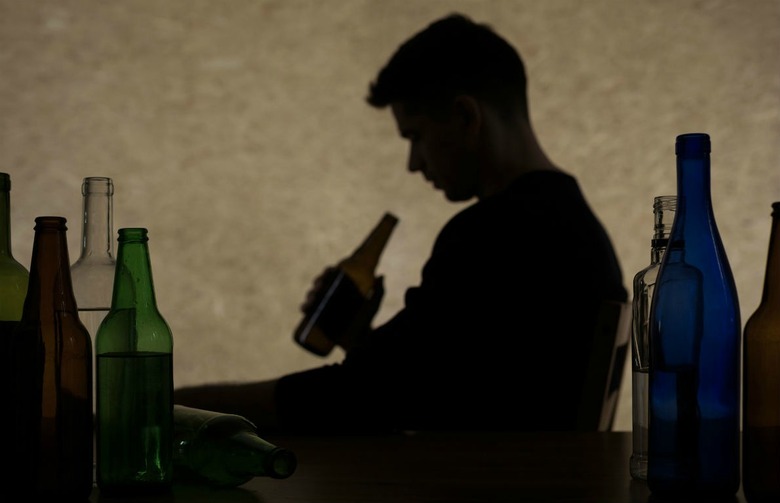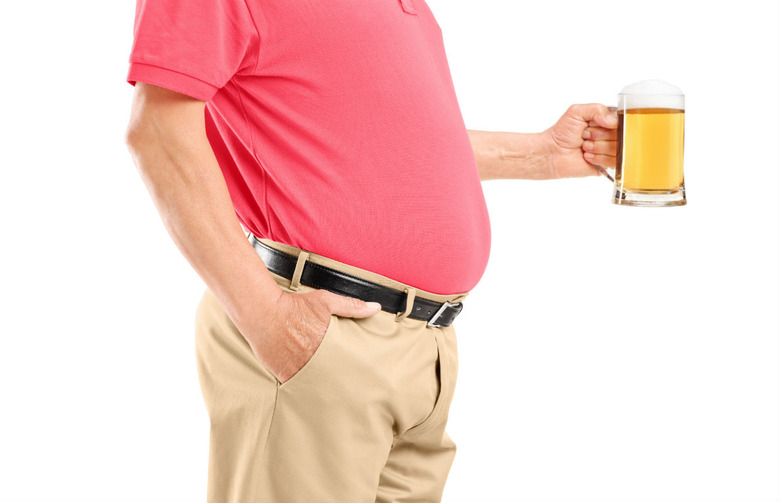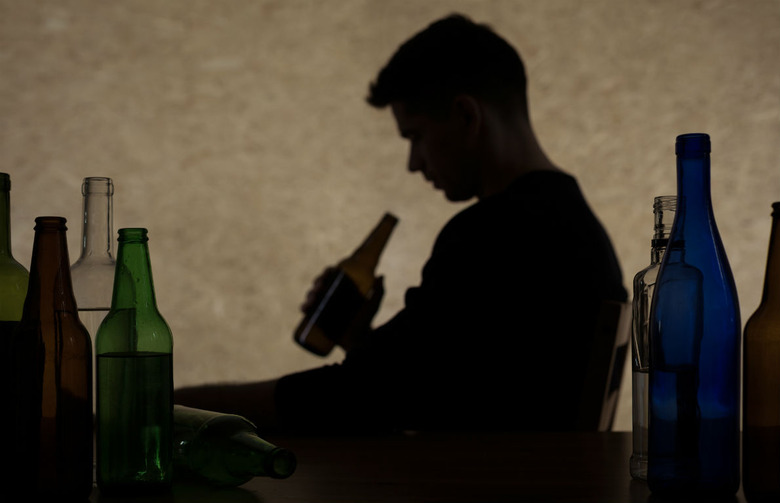What Actually Happens To Your Body When You Black Out From Drinking Too Much?
Drinking to the point of a blackout can often lead to physical harm or, in the worst cases, death. We've done some research behind blackouts and also reached out to some experts in the field of substance abuse in order to help inform readers of what is actually happening during an alcohol-induced blackout.
Jay Woody, MD, co-founder and chief medical officer of Legacy ER & Urgent Care, helped us learn more about blacking out, and Dr. Nikki Martinez, Psychologist, Licensed Clinical Professional Counselor (LCPC), a specialist in substance abuse, warns against the potentially deadly outcomes of over consumption.
If someone is "in a blackout, they can easily have reached the point of alcohol poisoning," says Dr. Martinez. "When someone does, they can choke on their own vomit, [and] if they have mixed with medication, their central nervous system can slow their respiration so much they stop breathing."
Click ahead to see more true and horrifying facts on blacking out.
Blackout Defined
The National Institute on Alcohol Abuse and Alcoholism has a great definition of what blackouts are:
"Blackouts are periods of amnesia during which a person actively engages in behaviors like walking and talking but does not create memories for these events as they transpire. This results in missing periods of time in the person's autobiographical record. Blacking out is quite different from passing out, which means either falling asleep from excessive drinking or literally drinking oneself unconscious."
Blackout vs. Brown Out
An article on Greatist talks about the difference between blacking out and browning out. It notes that the brain receptors responsible for creating memories in the hippocampus shut down after too much alcohol is consumed too quickly. Depending on how severely those brain receptors are disrupted, blackouts can have a few forms. A partial blackout is scientifically known as "fragmentary," but your friends probably call it browning out. Complete blackouts are scientifically called "en bloc," and these represent large spans of time in which you have total and complete alcohol-induced memory loss.
Different Bodies Handle Alcohol Differently
"Peoples' bodies react very differently to the effects of the same quantity of alcohol," says Dr. Woody. "For some people, small amounts will cause people to blackout and for others, not even large amounts of alcohol will cause people to blackout. Variables that impact how alcohol affects your body include: male vs. female, body weight and mass, [and] length of time over which one drinks in a sitting."
How Many Drinks Does It Take?
While some may find this odd, it's not always how much we drink but, rather, how quickly we drink it. Mark Rose, a licensed psychologist and addiction researcher, notes that "a person who slams three drinks in a row is more likely to have a blackout than somebody who acquires twice their blood alcohol concentration (BAC) over a longer [period of] time."
Is There a Set Timeframe for Alcohol Consumption and Blacking Out?
When asked about the timeframe for most blackouts, Jay Woody, MD, co-founder and chief medical officer of Legacy ER & Urgent Care, says that there really isn't a standard amount of time spent drinking after which people will blackout. Further, what each individual remembers will also vary on a case-by-case basis.
"Memory loss when drinking varies highly [from] person to person — just as some people blackout more easily than others. It depends on each person's tolerance and personal reaction to alcohol," says Dr. Woody.
Our Liver’s Role
"The liver can only process one drink per hour," says Dr. Nikki Martinez, Psychologist, LCPC. "Anything more than that [can lead] to blackouts, alcohol poisoning, liver damage, fatty liver, and cirrhosis if it continues.
"Medscape defines fatty liver caused by alcohol as follows: 'Fatty liver is the accumulation of triglycerides and other fats in the liver cells. The amount of fatty acid in the liver depends on the balance between the processes of delivery and removal. In some patients, fatty liver may be accompanied by hepatic inflammation and liver cell death (steatohepatitis),'" she says.
Short- and Long-Term Memory
Dr. Woody notes that when "consumed in large amounts... alcohol inhibits the ability to transfer short-term memories to long-term memories." As noted earlier, the more quickly one consumes large amounts of alcohol, the more likely it is that he or she will experience a blackout.
The Relationship Between Blacking Out and Dependency
"Addiction expert E. M. Jellinek, who started the first significant research on blackouts in the 1940s, believed blacking out was a sure sign of dependency," writes Jon Jackson of Gizmodo. "More recent studies tend to indicate this isn't always the case, as social binge drinkers... are just as likely to experience blackouts as people who drink heavily on a daily basis. Basically, it all comes down to that sudden spike in blood alcohol content, though evidence suggests some people may have a genetic predisposition to blacking out."
Warning Signs
Dr. Woody says that when you black out from drinking too much, your "body is telling you that you are doing something harmful and it is a true warning sign that you indulged in excess of what your body can tolerate."
Thus, just as with cookies, chocolates, and fried chicken, if you want to lead a healthy eating lifestyle, you should consume alcohol in moderation.









